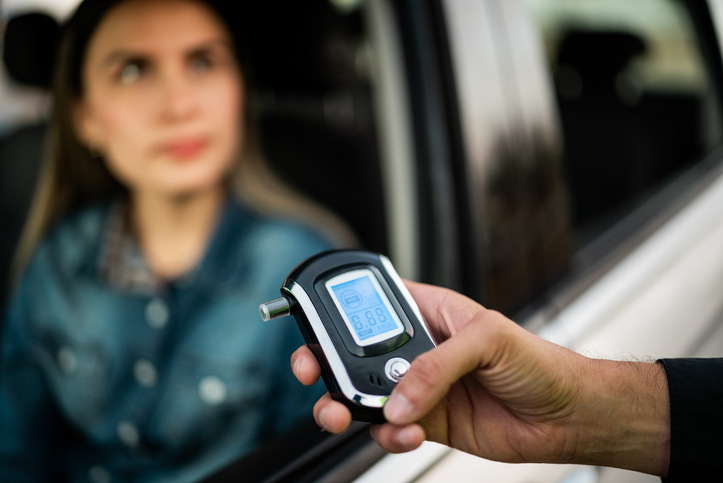
Louisville Woman Wrongfully Arrested for DUI Despite 0.0 Breath Test
In January 2022, Cuqita Boyd was simply on her way to work at the U.S. Postal Service when a minor fender bender changed everything. A Louisville Metro Police Department (LMPD) officer, Samantha Davenport, accused Boyd of driving under the influence after claiming she failed to follow instructions during a field sobriety test.
Boyd knew she was sober and pleaded with the officer for a Breathalyzer test on the roadside so she could clear her name and still make it to work. Davenport denied the request, later admitting she didn’t carry a portable Breathalyzer in her cruiser, remarking that it “wasn’t my thing.” Instead, Boyd was handcuffed and taken to jail.
An hour later, a Breathalyzer test finally administered at the jail confirmed what Boyd had been saying all along: her blood alcohol concentration was 0.0. A subsequent blood test also showed no trace of alcohol. Despite this conclusive proof, Boyd spent more than a year fighting the DUI charges in court. The case was not dismissed until 14 months later.
“This is egregious misconduct,” said attorney Greg Simms, who is now representing Boyd’s estate in a wrongful arrest lawsuit against the city. He pointed out that the officer continued to pursue prosecution “with the knowledge that she was sober.”
Arrests Below the Legal Limit
Although most people think a DUI requires a blood alcohol content (BAC) above the legal limit of 0.08, Kentucky law allows charges in some cases at levels as low as 0.04, depending on other factors. According to the Kentucky Transportation Cabinet, officers may rely on behavior, speech, and field sobriety tests when building a case.
That discretionary power has already led to high-profile controversies in Louisville. Former University of Louisville basketball star Russ Smith was arrested in June 2023 despite a BAC of just 0.065. In a separate case, an LMPD officer was charged with DUI despite registering under the legal limit in Hardin County.
Boyd’s case, however, was even more extreme. Unlike Smith and others who tested under 0.08, Boyd’s test results confirmed absolute sobriety. She had no alcohol in her system whatsoever, a fact that body camera footage later reinforced.
Body Camera Footage Raises Questions
Video evidence from the arrest showed Boyd trying to locate her insurance information on her phone after the collision. When she had difficulty finding it quickly, Davenport grew impatient and took Boyd’s wallet, refusing to return it. The exchange escalated when Boyd insisted the officer not “snatch” her belongings.
At several points, Boyd asked to call her employer to explain her delay, a request that was also denied. Body cam footage shows her repeatedly asking for a Breathalyzer, both on the roadside and again at the jail, only to be brushed off. Another officer on the scene said portable tests weren’t admissible in court — a claim at odds with common police practice. The National Highway Traffic Safety Administration notes that Breathalyzer tests are a standard tool in suspected drunk driving stops nationwide.
Even after the jail-administered Breathalyzer showed 0.0, Davenport refused to release Boyd and offered no explanation. At the hospital, a nurse confirmed the blood test was clean, describing Boyd as “clinically sober.”
Prosecution Moves Forward
Despite the evidence, the Jefferson County Attorney’s Office pursued charges, later arguing Davenport had probable cause to arrest Boyd based on her “sluggish” demeanor and difficulty following instructions. In a February 2025 filing, prosecutors claimed there was no proof Davenport acted with malice.
Davenport herself testified in a deposition that she wouldn’t have handled the stop any differently. She admitted she does not use Breathalyzers, saying “it wasn’t my thing.” Davenport ultimately resigned from the department in May 2024 after six years of service. According to The Marshall Project, cases like Boyd’s reflect a broader issue: the wide discretion officers have in interpreting impairment, even when objective test results suggest otherwise.
A Family Still Seeking Justice
Boyd, a 44-year-old mother of five, died in May 2024 due to complications from high blood pressure. Her family believes the emotional toll of the wrongful arrest and prolonged legal battle worsened her health. “It was on her mind heavy,” her son Shakiem said. “The main thing she wanted was justice. She didn’t want to see this happen to other families and other people.”
Her family continues to press forward with the wrongful arrest lawsuit, seeking accountability and an apology from the city.
Why This Case Matters
The ordeal underscores how vulnerable ordinary drivers can be when faced with a DUI charge — even if they are sober. The system is complicated, and once charges are filed, clearing your name can take months or even years. As the American Civil Liberties Union has long argued, wrongful arrests erode public trust in law enforcement and place unfair burdens on individuals and families.
Cases like Boyd’s highlight why it is critical to have an experienced DUI attorney in Santa Rosa when facing charges. A skilled attorney can challenge questionable police procedures, demand accountability, and navigate the complex web of DUI laws. For anyone accused of driving under the influence — especially in borderline or disputed cases — strong legal representation can mean the difference between a swift dismissal and a drawn-out ordeal that damages reputations, careers, and health.


